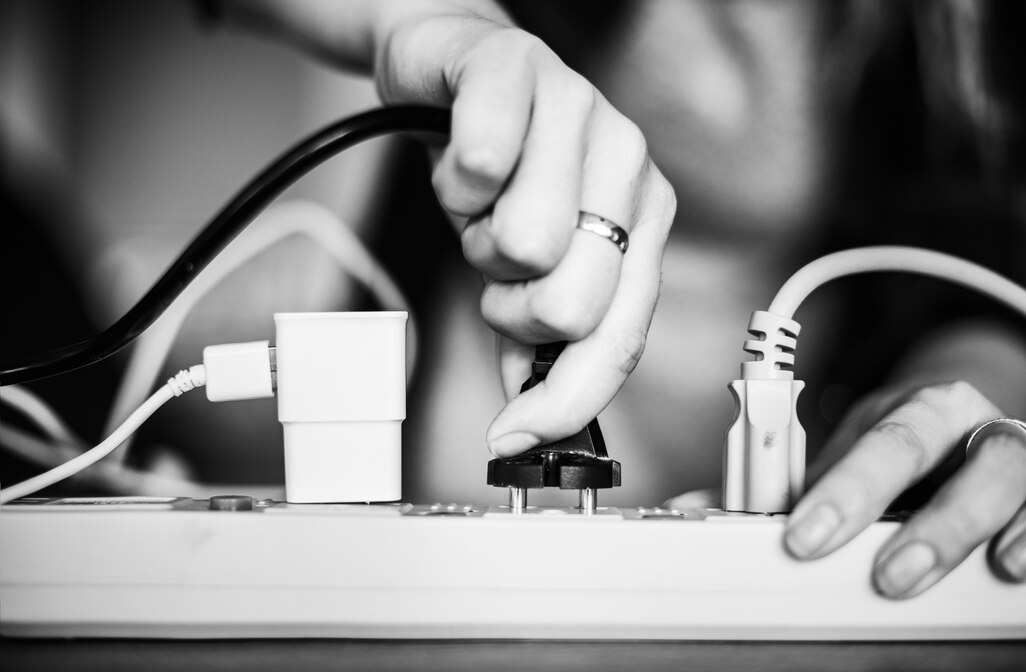
Ungrounded Extension Cord – Is it safe to use an ungrounded extension cord?
An extension cord is a convenient tool that many of us use in our homes and workplaces to extend the reach of our electrical outlets. However, using an ungrounded extension cord may pose safety risks that are often overlooked.
In this blog, we will examine what an ungrounded extension cord is, why it may not be safe to use one, and what precautions you can take to ensure the safety of yourself and others when using an extension cord.
What is an ungrounded extension cord?
An ungrounded extension cord is an electrical cord that does not have a grounding wire. Moreover, grounding wires are the third prong on a three-pronged electrical plug that protects against electrical shocks and fires.
Is it Safe to Use an Extension Cord?
Ungrounded extension cords can be safe to use in certain situations, but they can also be dangerous if you do not use them properly.
One of the main risks is that they do not provide protection against electrical shocks or fires that may occur due to faulty electrical devices. Moreover, grounding wires protect against these types of hazards. So, if they are used with an electrical device that has a fault, it could potentially cause an electrical shock or fire.
However, there are some situations where ungrounded extension cords can be safe to use. For example, if you are using a small electrical device like a lamp or phone charger, an ungrounded extension cord may be sufficient. Additionally, some older electrical devices may not have a grounding wire, so using an ungrounded extension cord with these devices may be the only option, Tech Penny.
Do They Protect from Electrical Shock?
Yes, grounded extension cords provide protection against electrical shocks. Here are some key points to know:
- A grounded extension cord has a third prong, which is the grounding wire.
- The grounding wire protects against electrical shocks by redirecting excess electrical current to the ground.
- If an electrical device has a fault, the grounding wire helps to prevent a person from getting an electrical shock. As it provides a path for the excess current to flow.
- Grounded extension cords are typically safer to use than ungrounded extension cords because they provide an extra layer of protection against electrical hazards.
- When using a grounded extension cord, it is important to ensure that the electrical device you are using also has a grounding wire and that the grounding wire properly connects.
When Should You Use a Grounded Extension Cord?
Power tools
Many power tools, such as drills, saws, and sanders, require a grounding wire to protect against electrical shocks. Similarly, you should always use a grounded extension cord when using power tools.
Large Appliances
Refrigerators, washing machines, and other large appliances often require a grounding wire to protect against electrical hazards. Moreover, make sure to use a grounded extension cord when plugging in these types of appliances.
Home entertainment systems
It is important to use a grounded extension cord to protect against electrical surges and other hazards. Especially if you have a home entertainment system with multiple components.
Outdoor use
You should use a grounded extension cord to protect against moisture and other hazards. For example, for lawn care or outdoor lighting.
Why Do Extension Cords Need to Be Grounded?
Firstly, grounding provides a path for excess electrical current to flow safely into the ground. If an electrical device has a fault, excess current can flow through the device and create a hazard. Similarly, grounding helps to prevent these hazards by providing a safe path for the excess current to flow.
Secondly, grounding helps to protect against electrical surges and other hazards. Electrical surges can occur when there is a sudden increase in electrical voltage, which can damage electrical devices and create a safety hazard. Furthermore, grounding helps to protect against surges by redirecting excess current to the ground.
Lastly, grounding is required by electrical codes and safety standards. Moreover, electrical codes and safety standards require grounding for many types of electrical devices, including power tools, and appliances. Additionally, using this extension cord helps to ensure that these devices are safe and in compliance with regulations.
Where to Get Extension Cords?
Looking for the perfect extension cord? We offer a wide variety of high-quality extension cords for all your needs. At Wholesale Electric USA, we have a selection of various lengths, gauges, and types of extension cords to ensure that you can find exactly what you need. So, come shop with us for your extension cord needs! We guarantee that you will be satisfied with your purchase and the level of service you receive.

Wholesale Electric USA
Wholesale Electric USA was started with a goal of providing a competitive edge on pricing and customer service levels. A group of professionals from multiple angles in the Supply Chain industry started collaborating on issues they were facing with rising costs and diminishing service levels, and this is where Wholesale Electric USA was born!

